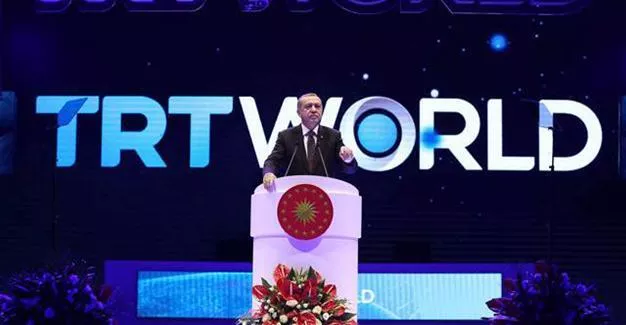Levent Kenez/Stockholm
With a presidential decree published in the Official Gazette last week, a tax collected on behalf of Turkish state broadcaster Turkish Radio and Television Corporation (TRT) on electronic devices was increased. TRT, which has been criticized by the opposition for turning into a propaganda mouthpiece of the ruling party, operates with 18 television and 17 radio stations, nine digital platforms, four print publications and four digital applications.
The TRT tax increased from 10 to 12 percent for mobile phones, from 2 to 4 percent for tablets and computers, from 8 to 14 percent for smartwatches and from 0.4 to 0.8 percent for land vehicles. Unlike other countries, a person who buys a vehicle in Turkey pays a tax to TRT, among other taxes.
According to news in the Turkish media, a person who bought an iPhone 13 (128 GB) paid TL 970 ($60) in TRT tax before last week, while the tax has now increased to TL 1,164 ($71).
The taxes paid for TRT were increased by a decision Erdoğan made on May 26, 2022:
TRT declared total revenue of TL 5.6 billion and profit of TL 1.4 billion in its 2021 annual report. In 2020 TL 4.2 billion in revenue and TL 496.5 million in profit were announced. According to a Court of Accounts (Sayıştay) audit, the tax on electronic devices of TL 2.7 billion and an energy tax of TL 1.2 billion constituted 93 percent of TRT’s 2020 revenue.
A 2 percent charge in consumer electricity bills was abolished by the government on December 25, 2021 as a result of public anger over the excessive increase in electricity prices.
Meanwhile, TRT’s budget was discussed in a parliamentary committee on May 26, 2022. TRT General Manager Zahid Sobacı explained to the deputies that it is a necessity for TRT to be financed by the public. Sobacı, who said he was unhappy with the abolishment of the 2 percent tax in electricity bills, added that they are telling the world the official view of the Turkish government in their broadcasts.
“If I don’t receive the tax on electronic devices, if I don’t receive a share of electricity bills and if I don’t receive financial support from the state, why am I a state broadcaster?” Sobacı added.
In his presentation to lawmakers, Sobacı also said TRT produced TV series to promote Turkish intelligence operations and that they shot a documentary about the French state’s alleged relationship with the Islamic State in Iraq and Syria (ISIS) through cement giant La Farge. He stated that they would add the Spanish language to digital platforms already broadcasting in German, French and Russian.
Opposition deputies stated that TRT covers only President Recep Tayyip Erdoğan and the spokespersons of the ruling party, adding that although taxes were collected from all citizens, only the ruling party was served.
TRT is criticized not only for its broadcasts but also for the composition of its board considering that Erdoğan only appoints ruling party loyalists. In July 2021 President Erdoğan appointed Hilal Kaplan, one of the chief propagandists of the regime, as a member of the TRT board. According to a presidential decree published in the Official Gazette, Erdoğan selected Ahmet Albayrak, an advisor to his communications office, as chairman of the board, and Mehmet Zahid Sobacı, the presidency’s deputy director of communications, as TRT general manager.
Minutes of the parliamentary committee meeting at which TRT’s budget was discussed:
Other newly appointed members were also handpicked to operate according to the Erdoğan government’s policies. Oğuz Göksu, a staff member in the Presidential Communications Directorate; the directorate’s Media Relations Coordinator Mücahid Eker; Associate Professor Veysel Kurt, a researcher at the intelligence-linked think tank the Foundation for Political, Economic and Social Research (SETA); the pro-government English-language newspaper Daily Sabah’s Editorial Coordinator Meryem İlayda Atlas; and Labor and Social Security Minister Vedat Bilgin’s son Oğuzhan Bilgin were named as new members as well.
TRT is also frequently criticized for its propaganda television series. It serves the agenda of the Erdoğan government with ultranationalist and anti-Western TV series that distort historical facts. TRT also transfers financial resources to pro-government companies with orders for TV series, programs, and documentaries.
Nordic Monitor previously reported that in its obligatory declarations filed under a US disclosure law, TRT made a number of false statements, claiming that it acts independently of the Turkish government.











